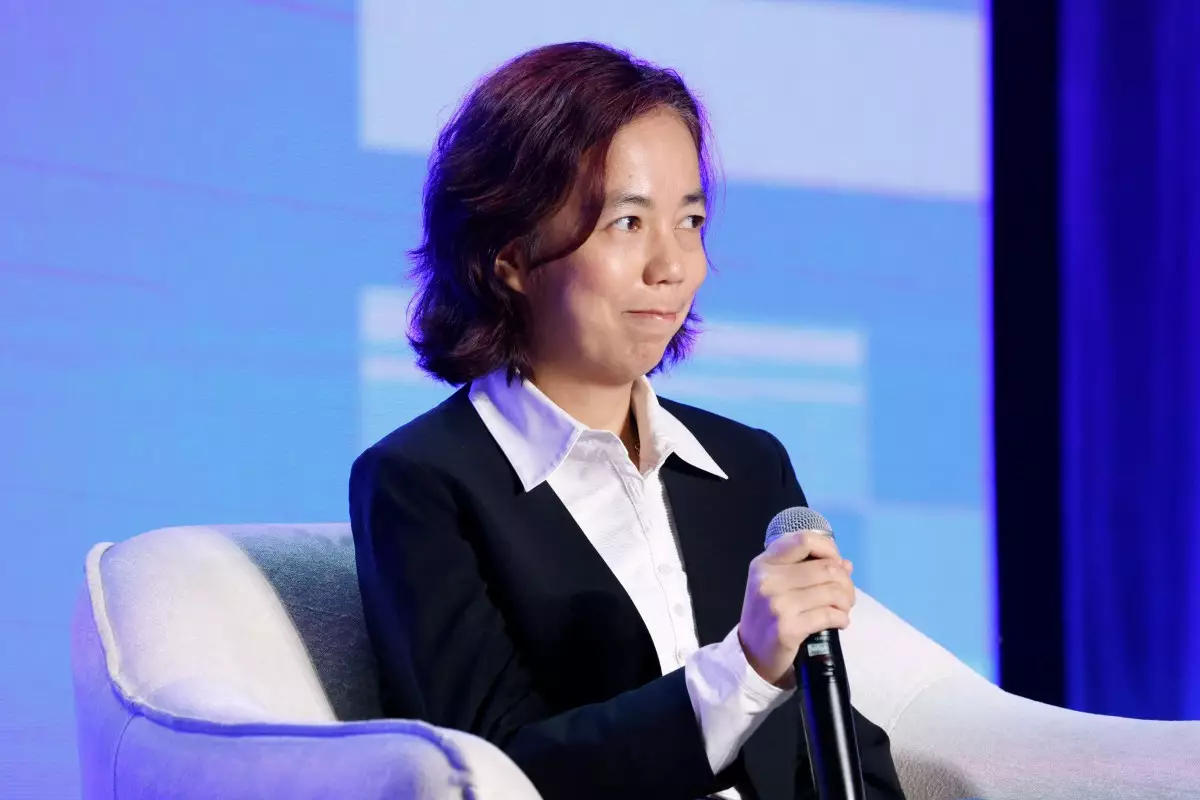In an era where artificial intelligence (AI) represents the frontier of technological innovation, the race among cloud providers for securing partnerships with promising AI startups has intensified. One of the latest developments in this competitive landscape is the collaboration between Fei-Fei Li’s World Labs and Google Cloud, which is set to reshape the future of AI model training. This partnership marks a significant milestone, with implications not only for the involved companies but also for the entire cloud services sector.
Led by renowned AI expert Fei-Fei Li, World Labs has recently secured $230 million in funding, raising its valuation to over a billion dollars. This substantial financial backing highlights the startup’s potential to carve out a niche in the competitive world of AI. The company aims to develop advanced “spatially intelligent” AI models capable of understanding and interacting with video and geospatial data. Such capabilities are crucial as businesses increasingly seek to integrate AI into their operations to enhance decision-making and increase efficiency.
Li’s background, including her previous role as chief scientist at Google Cloud, ensures that she is well-equipped to steer World Labs toward success. However, Google Cloud’s decision to partner with World Labs is not solely influenced by prior connections; it underscores a strategic move to forge relationships with high-potential startups that could drive future revenue.
The deal is not merely about providing cloud computing capacity; it is a multi-faceted endeavor that involves leveraging resources and expertise to foster innovation. With AI startups like World Labs becoming increasingly valuable clients for major cloud providers, services such as Google Cloud must actively compete for their business. Other notable collaborations include OpenAI with Microsoft Azure and Anthropic with AWS, showcasing a growing trend where significant investments are directed toward developing AI models.
James Lee, general manager of startups and AI at Google Cloud, emphasizes the importance of building robust relationships with emerging AI players. These early partnerships could pave the way for future expansions and greater market share as AI models scale. By aligning with companies poised for growth, cloud providers can secure their positions in an ever-evolving landscape.
As part of its collaboration with World Labs, Google Cloud will supply GPU servers to facilitate the training of complex AI models. While this signals a shift towards more sophisticated computational demands, it also points to the ongoing challenge of hardware scarcity, particularly when it comes to Nvidia GPUs. Although Google has been developing its own tensor processing units (TPUs) in an effort to reduce dependence on Nvidia, the industry still heavily favors GPUs for AI training.
Despite Google Cloud’s efforts to market TPUs as viable alternatives, the demand for Nvidia’s technology remains a significant factor in determining which platforms startups choose for model development. In this case, World Labs opted for GPU training, raising questions about the decision-making process behind such choices. While Google Cloud claims that this decision aligns with World Labs’ current product roadmap, the flexibility to switch platforms remains a possibility as the startup evolves.
As AI startups like World Labs continue to emerge and develop groundbreaking technologies, cloud providers must adapt to the rapid growth and changing requirements of their clients. This underscores the importance of scalability and resource availability when entering into partnerships. Google Cloud’s ability to promise substantial GPU clusters as resources further endears it to startups in need of significant computational power.
However, this partnership is not exclusive, and World Labs may pursue additional agreements with other cloud providers. Such flexibility is crucial for startups, as it allows them to navigate the best possible arrangements for their evolving needs. Some cloud companies, like Microsoft, face challenges in meeting the demands of their partnerships, highlighting the competitive pressures within the market.
The collaboration between World Labs and Google Cloud illustrates the dynamic nature of the AI and cloud computing sectors. The demand for scalable, powerful computing resources will only increase as AI models grow in complexity. As cloud providers continue to vie for partnerships with entrepreneurs at the helm of AI innovation, we may witness new models of collaboration that redefine success in this exciting field. The interplay of technology, investment, and strategic alliances will shape the future of AI and cloud services, placing all stakeholders at the heart of a transformation that could alter industries worldwide.

